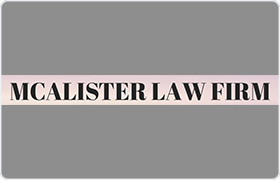Bay Saint Louis White Collar Crime Lawyer, Mississippi
Sponsored Law Firm
-
 x
x

Click For More Info:
-
McAlister Law Firm, LLC
419 Security Square Gulfport, MS 39507» view mapCriminal Defense Law Your Gulf Coast Attorney
An Attorney with Nineteen years of court room experience. Licensed in the States of Mississippi and Alabama.
228-265-5190
Not enough matches for Bay Saint Louis White Collar Crime lawyer.
Below are all Bay Saint Louis Criminal lawyers.
Rob Curtis
✓ VERIFIEDCriminal, Divorce & Family Law, Accident & Injury, Estate, Bankruptcy & Debt
Rob Curtis is a practicing lawyer serving Gulfport, MS and the surrounding area.
W. Edward Hatten
Alcoholic Beverages, Dispute Resolution, Arbitration, Criminal
Status: In Good Standing
Becky Allen-Farrell, PLLC
Personal Injury, Criminal, Estate, DUI-DWI
Status: In Good Standing Licensed: 23 Years
FREE CONSULTATION
CONTACTJimmy McGuire
Family Law, Traffic, Personal Injury, White Collar Crime
Status: In Good Standing Licensed: 52 Years
Becky Allen Farrell
Lawsuit, DUI-DWI, Identity Theft, Personal Injury
Status: In Good Standing Licensed: 23 Years
Deborah Kay Hester
Criminal, Divorce & Family Law, Real Estate
Status: In Good Standing Licensed: 41 Years
Walter W. Dukes
Complex Litigation, Criminal, Defamation & Slander, Mesothelioma
Status: In Good Standing Licensed: 46 Years
FREE CONSULTATION
CONTACTSusan Taylor Smith
Criminal, Divorce & Family Law, Estate, Accident & Injury
Status: In Good Standing Licensed: 25 Years
FREE CONSULTATION
CONTACT Carolyn McAlister Gulfport, MS
Carolyn McAlister Gulfport, MS

